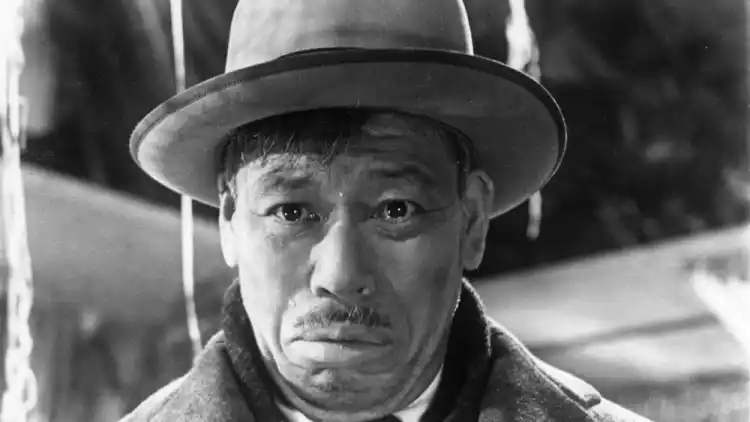I watched Akira Kurosawa’s 1952 film Ikiru, and it made me think about our “social sleep“. We often just follow the herd. But what happens when one person wakes up? The film explores this awakening, and I believe it critiques the very nature of our morality, drawing on ideas from thinkers like Nietzsche.
Table of Contents
🚶 The Fluid Herd
In Ikiru, the characters move together. They are a collective. Then, an illness forces the main character, Watanabe, to break away. This made me think about how the “herd” isn’t a solid thing. It’s fluid. We drift in and out of it. I know I’ve done it myself. Sometimes you conform, other times you deviate.
⛓️ A Critique of Slave Morality
I see the film as a powerful critique of the concepts in Nietzsche’s Beyond Good and Evil. He wrote about “slave morality.” This is the morality of the powerless, born from envy and resentment. Unable to be powerful themselves, they try to tear down the strong. They elevate values like humility, pity, and obedience, calling their own perceived weakness a virtue.
👨💼 Watanabe’s Passive Aggression
Watanabe is the perfect example of this. For 30 years, he was a bureaucrat who suppressed himself. This passivity manifested as passive-aggression. I could feel the hidden anger in his relationship with his son. It was resentment turned inwards.
😠 Resentment of the Master
Here, I diverge a bit from a strict reading of Nietzsche. I think resentment can also exist in “master morality.” When you embrace your own power, you also confront your own failures. This can lead to a kind of self-hatred. Even a master can resent their own limitations.
🏞️ Creating New Values
Watanabe’s journey changes when he decides to build a park for children. This is an act of creating a new value. Some might say compassion is a trait of slave morality. But I argue this act empowers Watanabe. He creates meaning here and now, which is the mark of a master. He isn’t waiting for a reward in an afterlife.
⚙️ The Mechanical Trap
But there’s a danger. Any new value, once accepted by the masses, can become a mechanical law. It can become a new kind of slave morality. This made me question where systems come from. The very bureaucracy Watanabe worked in was built on values created by individuals long ago.
🔬 Two Sociologists, One Film
I see a debate between two key sociologists in this film.
- On one side is Gabriel Tarde. In his book The Laws of Imitation, he argued that social change starts with individual innovation which is then copied by others. From this view, Watanabe’s park is a creative act that could change the system.
- On the other side is Émile Durkheim. In The Rules of Sociological Method, he posited that social systems exist outside of us and pacify us. He might say Watanabe was just reacting to anomie—a feeling of normlessness—not creating something new.
The film’s ending seems to support Durkheim. Watanabe’s colleagues praise him, but then it’s back to bureaucracy as usual. The system is strong.
Summary
My analysis of Kurosawa’s Ikiru sees it as a story about waking from “social sleep.” The film visually represents the conflict in Nietzsche’s Beyond Good and Evil between master and slave morality. I argue that Watanabe’s final act is a move towards master morality because he creates his own value. This individual act brings up a classic sociological debate. Is it an innovation that sparks imitation, as Gabriel Tarde described in The Laws of Imitation? Or is it a reaction to normlessness within a powerful social structure that ultimately remains unchanged, as Émile Durkheim might argue based on The Rules of Sociological Method? The film leaves us with the unsettling idea that while one person can awaken, the system often stays the same.
- Power Moves with Shaquille ONeal and the Future of Basketball
- From the Court to the Boardroom: Shaq’s Legacy and the Rebirth of Reebok
- Alicia Silverstone’s “Irish Blood” Divides Audiences with First Episodes
- Batista Isn’t Crazy and Claudette Would Be – Dexter: Resurrection Episode 7
- Ida Movie Review: Deterritorialization and Lost
- The Banshees of Inisherin: Thrownness, Pride, Anxiety, and Nothingness
- Jeanne Dielman: Digging into Life’s Authenticity and Big Questions
